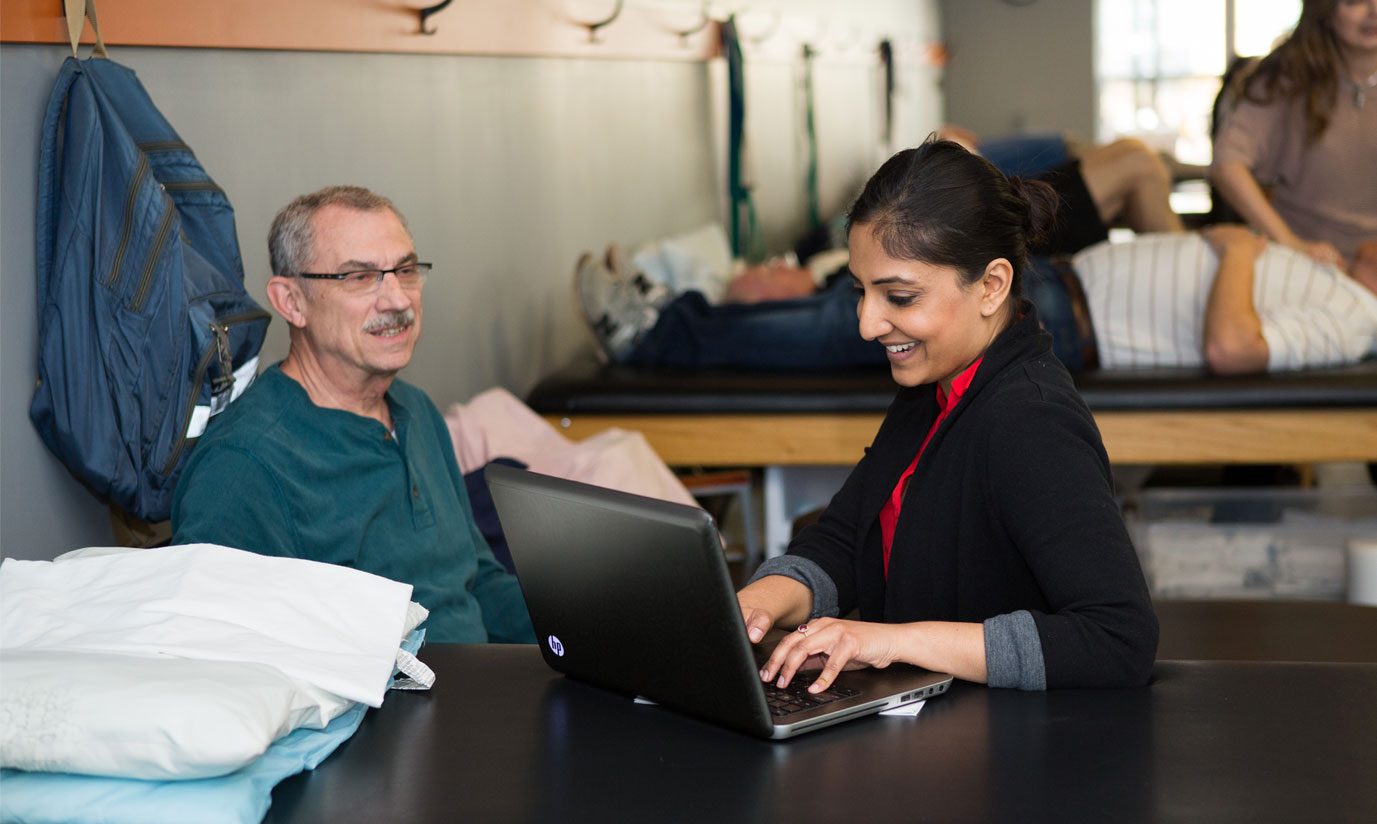
Reframing the Complex Patient: Overcoming Barriers to Addressing Stress and Adversity in Physical Therapy Care
-
Register
- Non-Member - $149
- PT Member - $99
- PTA Member - $99
- Student - $99
- Post-Professional Student - $99
- APTA Staff - Free!
This course is Part 3 of the Reframing the Complex Patient series, available for individual purchase, and focuses on overcoming clinical and system-level barriers to delivering stress-informed, integrative care. Participants will learn how to document patient complexity, support appropriate reimbursement, apply comprehensive evaluation strategies, and develop sustainable approaches to self-care and professional boundaries.
Interested in the full three-course series? Click here to explore the complete Reframing the Complex Patient program.
Key Features
- This course is available until 12/31/2026
- Cost:
- $99 for PT, PTA, Post-Professional, and Student Members
- $149 for Non-Members
- Earn CEU: 0.2 (2 contact hours)
Sarah Wenger
PT, DPT
Sarah Wenger, PT, DPT, FNAP and Orthopaedic Clinical Specialist is the Physical Therapy Services Director for the Philadelphia Department of Health. In this role she is developing and directing a new program through the city’s Ambulatory Health Services that provides physical therapy to city residents who are uninsured or otherwise have limited access to services. She is also an adjunct professor at Drexel University’s College of Nursing and Health Professions where she was previously a professor for 17 years. She teaches the pathophysiology series where she develops students’ reasoning skills in the context of chronicity and complexity across the biopsychosocial spectrum. Dr. Wenger enjoys working with chronic biopsychosocial dynamics and teaching others how to care for patients with complex needs. Her treatment focuses on interprofessional collaboration, patient education, and building self-efficacy that empowers patients to manage their chronic conditions as independently as possible. As part of an interprofessional team, Dr. Wenger developed a chronic pain clinical reasoning model and psycho-education program called Power Over Pain. Dr. Wenger has published and presented on a range of topics related to her areas of expertise in chronic pain, complexity and chronicity, trauma-informed care, under-resourced populations, clinical reasoning, and interprofessional care and education.
Andra DeVoght
PT, MPH
Has been a physical therapist since 1995. After a decade working at Harborview Medical Center, Seattle’s level 1 trauma hospital, she was inspired to pursue a master’s degree in public health that radically changed her approach to physical therapy and led her to open a private practice, Insight Physio PLLC. Andra’s clinical practice at Insight Physio focuses on a biopsychosocial approach to chronic pain, women’s health, and pediatrics. She collaborates with mental health professionals for the care of complex patients. She teaches therapeutic yoga and mindfulness classes for people experiencing chronic pain or other chronic illnesses.
Andra has focused on continuing education course work that integrates a mind-body approach to health care. These include yoga teacher certification with specialty in trauma informed yoga, mindfulness instructor training, NEAR sciences (neuroscience, epigenetics, ACEs and resilience) teacher training, Explain Pain, Postural Restoration Institute courses, Center for Mind Body Medicine facilitator training, and most recently the advanced level course work with the Somatic Experiencing Trauma Institute.
In addition to clinical practice Andra collaborates on community-based projects teaching about the social determinants of health and a biopsychosocial approach to health and healthcare. She has developed curriculum and guest lectures for teachers/special-ed staff and middle school, high school , and midwifery students. Central to her biopsychosocial model is a deep understanding of the stress response and the health effects of stress and adversity. When we view patient care through the lens of the stress response, we begin to connect important dots between symptoms, beliefs, behavior and life circumstances.
Course Instructions
- Click on the Contents tab to watch the course recording.
- Click the Take Quiz button to complete the assessment. Learners will have 3 attempts to pass and must answer at least 70% of questions correctly.
- Click Fill Out Survey under the Evaluation listing to provide valuable course feedback. Scroll down on all questions as there may be answer options that expand past the size of the window.
- Click the View/Print Your Certificate button under the Certificate listing. You can view/print your certificate at any time by visiting the APTA Learning Center and clicking the CEU Certificate/Transcript link on the left-hand side of the page.
Need Assistance?
For assistance logging in, accessing activities, claiming credit, or for other questions or concerns, please e-mail learningcenter@apta.org.


